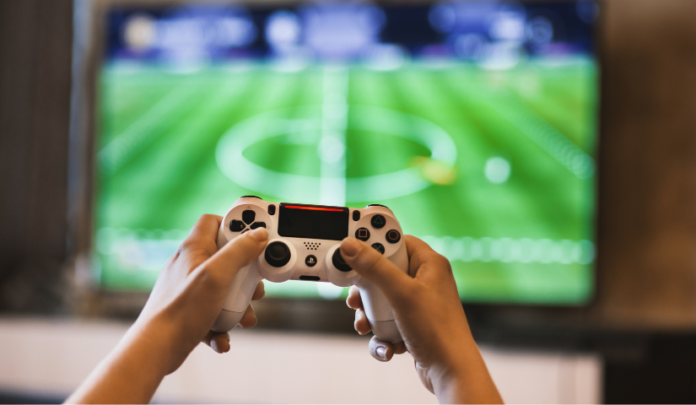The Doctrine of Copyright Exhaustion
The doctrine of exhaustion, also known as the first sale doctrine, is a cornerstone of copyright law. It provides that once a copyright owner has sold a copy of a work, their right to control its distribution is “exhausted,” and the purchaser is free to resell, rent, or lend that specific copy.
- Under EU Law: The InfoSoc Directive [2] governs copyright for works in general, limiting exhaustion to tangible copies.
- Under Software Directive [3]: This directive allows exhaustion for both tangible and intangible copies of the software, as ruled in the CJEU case of UsedSoft v. Oracle [4].
The central issue in this case was whether digital video games, as “complex works,” fall under the InfoSoc Directive or the Software Directive, and whether the principle of exhaustion can be extended to dematerialized copies.
Background of the Case
In 2015, the French consumer rights group UFC Que Choisir challenged Valve Corporation, the operator of the Steam video game platform, arguing that Valve’s Subscriber Agreement, which prohibits the resale of purchased video games, violated the principle of copyright exhaustion. UFC sought recognition of the right for consumers to resell digital games, just as they can with physical copies. In 2019, the Paris Court of First Instance ruled in favour of UFC Que Choisir [5], holding that the doctrine of exhaustion applies to digital copies, allowing Steam subscribers to resell their games. The court relied on UsedSoft, which extended exhaustion to software licenses, whether delivered physically or digitally. In 2022, the Paris Court of Appeal overturned the lower court’s decision, distinguishing video games from software. It ruled that digital copies of video games are governed by the InfoSoc Directive, which limits exhaustion to tangible goods, and not by the Software Directive, which applies exclusively to software.
The Supreme Court’s Judgment
On October 23, 2024, the French Supreme Court (Cour de cassation) upheld the appellate court’s ruling, solidifying the legal stance against second-hand markets for dematerialized video games. The court held that the InfoSoc Directive governs digital video games as they are “complex works” that combine software with other creative elements, such as graphics, music, and storyline. Unlike the Software Directive, the InfoSoc Directive explicitly limits the principle of exhaustion to tangible goods and excludes dematerialized works from its scope. This distinction was reinforced by the CJEU’s Tom Kabinet case [6], which clarified that digital books, like video games, do not qualify for the exhaustion principle under the InfoSoc Directive.
Drawing from the Nintendo case [7], the court reiterated that video games are protected as unified works rather than as mere software. Since the Software Directive’s provisions apply only to standalone software, video games are instead governed by the broader copyright rules of the InfoSoc Directive. The court acknowledged concerns raised in the Tom Kabinet ruling that allowing resale of digital goods could harm the copyright holders. Unlike tangible goods, digital goods do not deteriorate over time, making them perfect substitutes for the original, thereby eroding market exclusivity and profitability. The court emphasized that preserving the economic rights of creators and publishers is paramount to ensuring continued innovation and production in the gaming industry. The French Supreme Court declined to refer the matter to the Court of Justice of the European Union (CJEU) for a preliminary ruling, stating that the correct application of EU law left no reasonable doubt.
Implications of the Judgment
The decision consolidates the position of publishers like Valve, allowing them to enforce contractual clauses prohibiting the resale of dematerialized video games. This ensures greater control over pricing and distribution channels. Consumers lose the ability to resell their digital games, reinforcing the notion that purchasing digital content often resembles a license agreement rather than outright ownership. The ruling establishes a clear distinction between tangible and digital goods in the context of copyright exhaustion. It could influence similar disputes across the EU and potentially affect other sectors dealing with dematerialized content, such as e-books and music. By drawing a line between the InfoSoc Directive and the Software Directive, the judgment underscores the limitations of current EU copyright frameworks in adapting to digital economies.
Conclusion
The French Supreme Court’s ruling in UFC Que Choisir v. Valve marks a definitive end to the debate over second-hand markets for digital video games in France. By prioritizing the economic rights of rightsholders and distinguishing between tangible and dematerialized goods, the court aligns itself with recent EU case law, particularly the Tom Kabinet decision. This judgment not only strengthens the legal protections for publishers but also sets a precedent for future disputes involving digital content in the EU. However, it raises questions about consumer rights in the digital age, highlighting the need for updated regulations that balance the interests of creators, publishers, and consumers in a rapidly evolving marketplace.
[ad_1]
Source link

